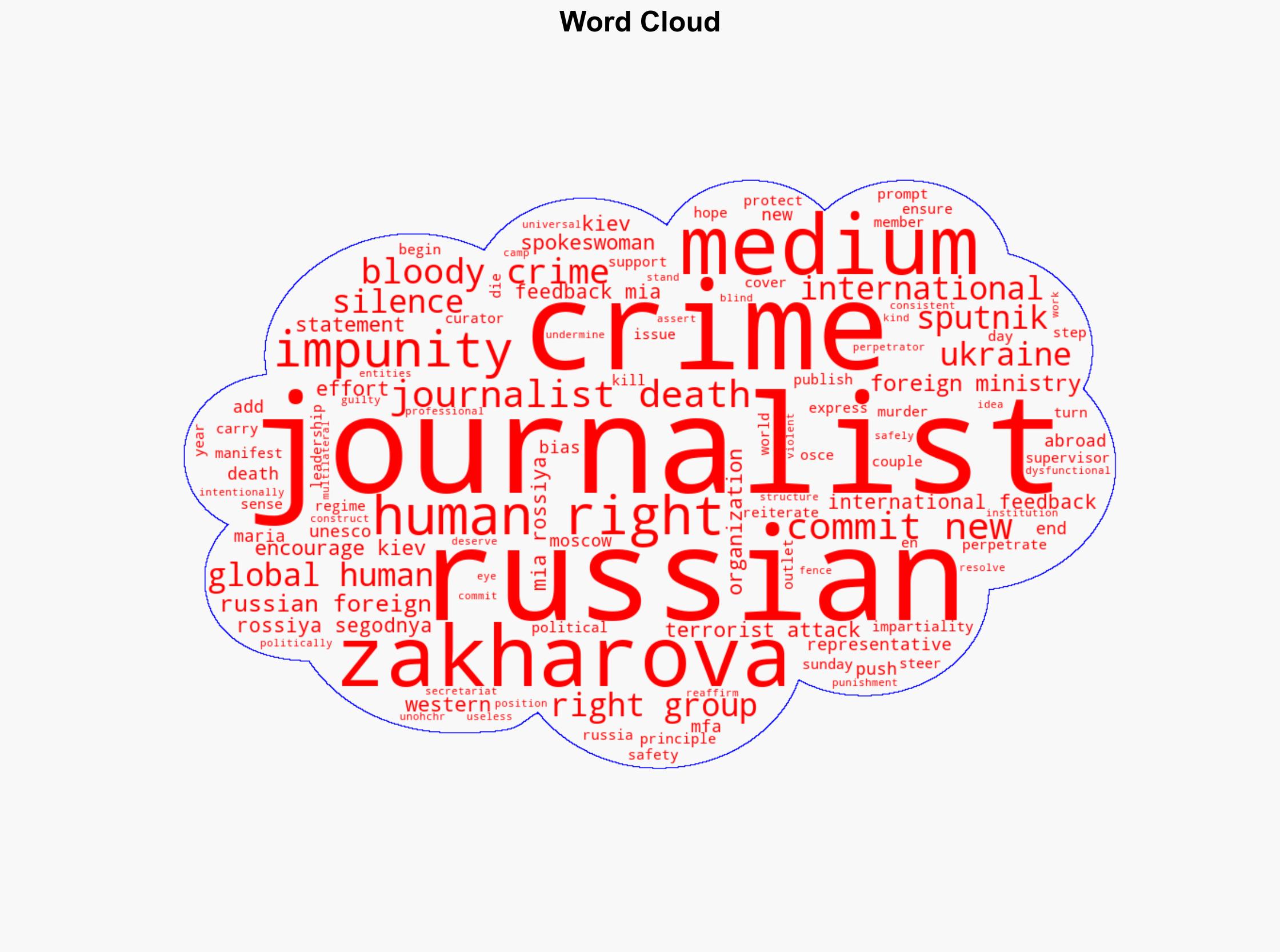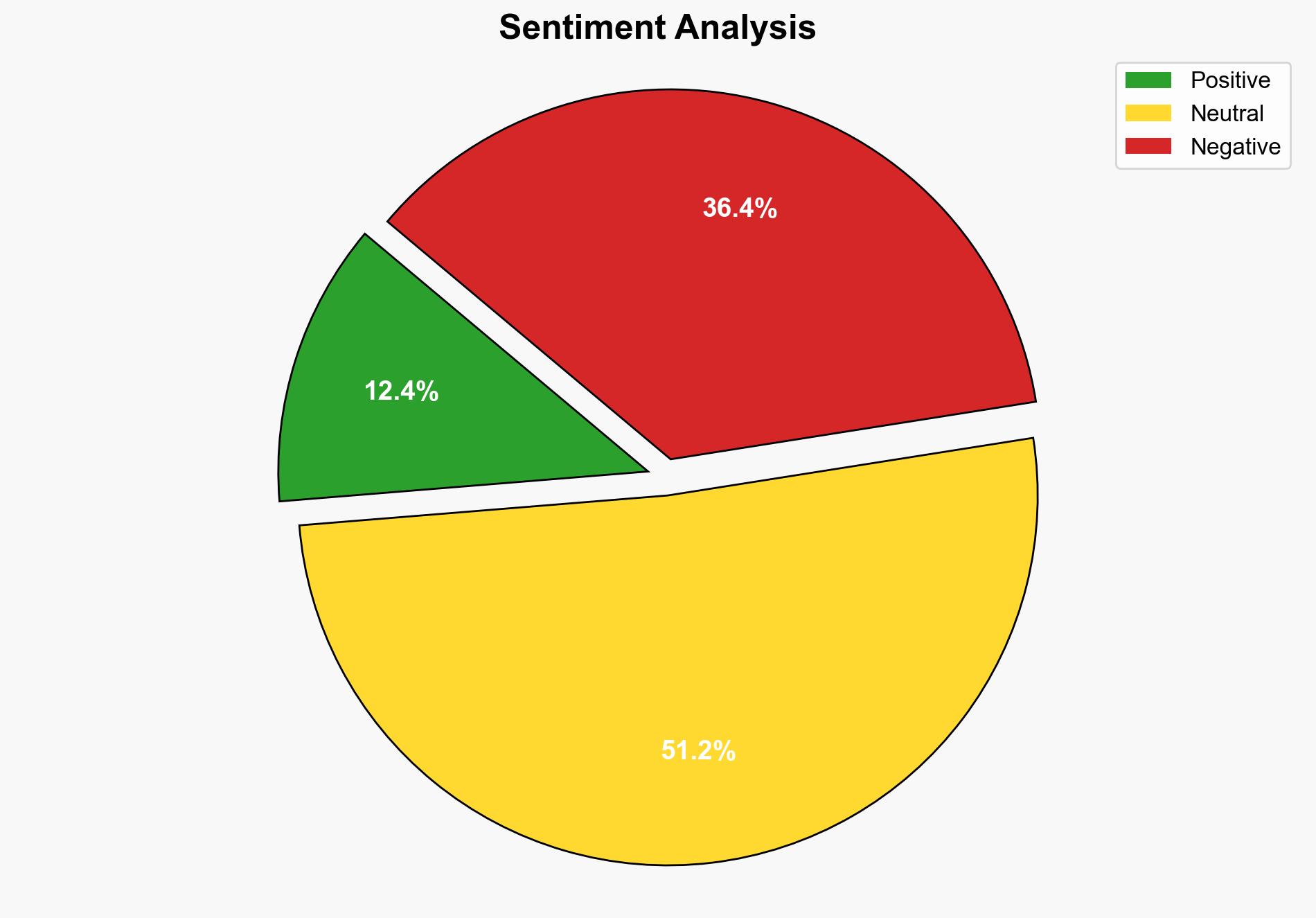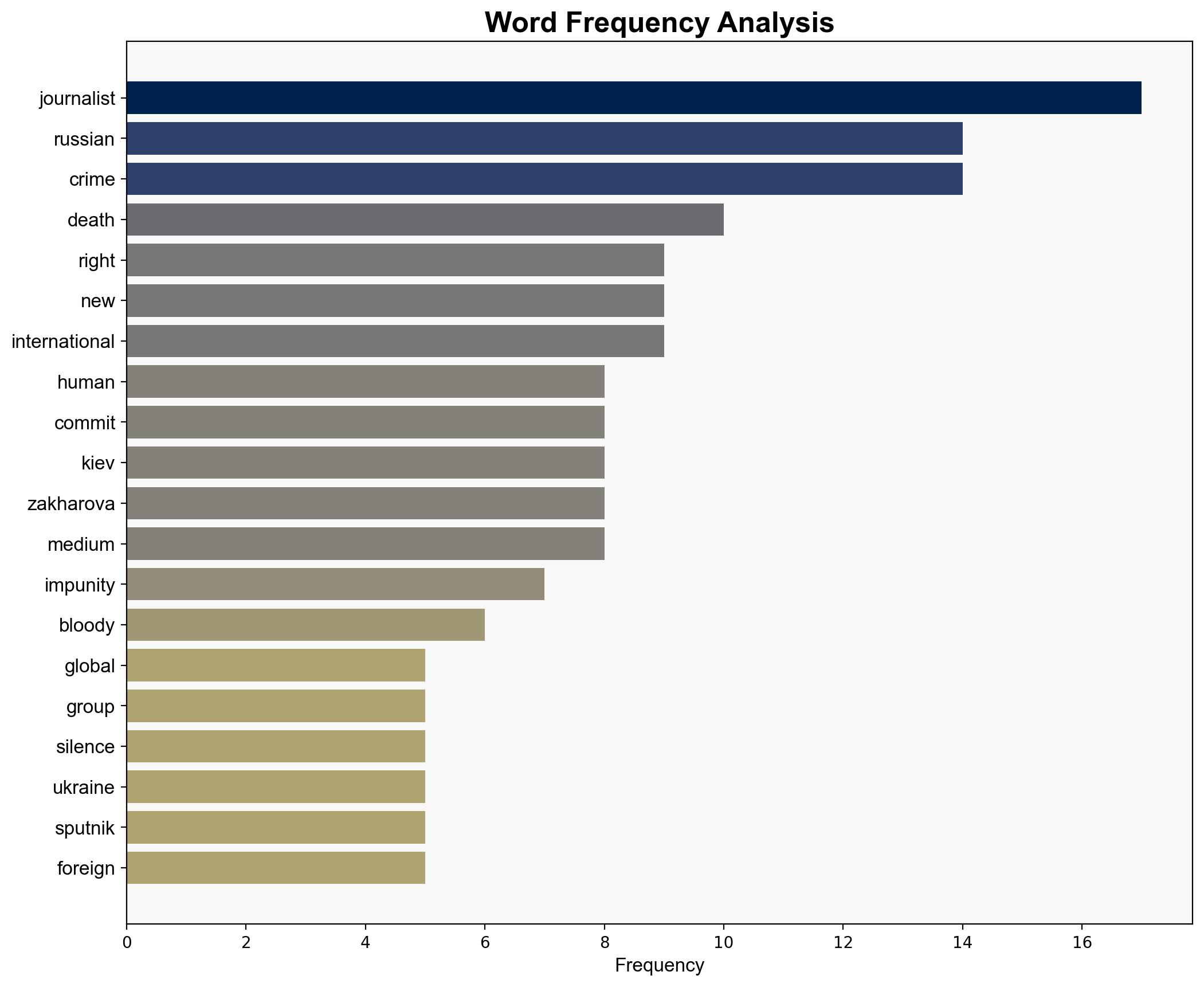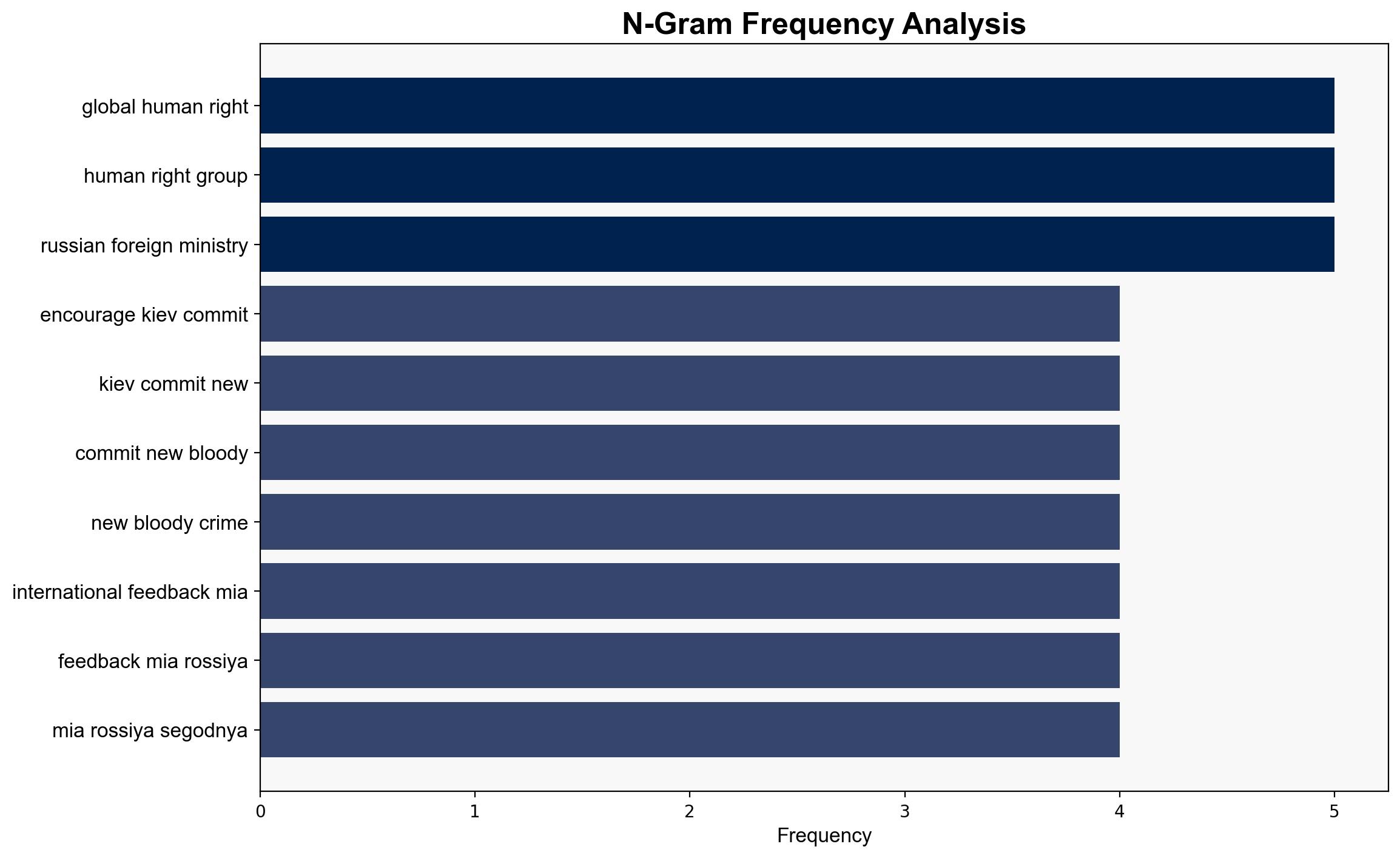Russian MFA Global Human Rights Groups Silence Journalist Deaths Push Ukraine to Commit New Crimes – Sputnikglobe.com
Published on: 2025-11-02
Intelligence Report: Russian MFA Global Human Rights Groups Silence Journalist Deaths Push Ukraine to Commit New Crimes – Sputnikglobe.com
1. BLUF (Bottom Line Up Front)
The most supported hypothesis is that the Russian MFA is using the narrative of journalist deaths to delegitimize Ukraine and its Western allies. This is based on the consistent framing of Ukraine as being influenced by Western powers to commit crimes. Confidence level: Moderate. Recommended action: Monitor media narratives and engage with international human rights organizations to address potential biases and enhance transparency.
2. Competing Hypotheses
1. **Hypothesis A**: The Russian MFA’s statements are a strategic effort to delegitimize Ukraine and its Western allies by highlighting alleged impunity in journalist deaths and framing Ukraine as a perpetrator of crimes under Western influence.
2. **Hypothesis B**: The Russian MFA is genuinely concerned about journalist safety and is calling for international accountability, using the narrative to pressure global human rights organizations to act impartially.
Using the Analysis of Competing Hypotheses (ACH) 2.0, Hypothesis A is better supported due to the consistent pattern of rhetoric from Russian sources framing Ukraine negatively and the lack of concrete evidence provided to substantiate claims of Western influence in journalist deaths.
3. Key Assumptions and Red Flags
– **Assumptions**: Hypothesis A assumes that the Russian MFA’s primary goal is political rather than humanitarian. Hypothesis B assumes a genuine concern for journalist safety.
– **Red Flags**: The repetitive nature of the narrative without new evidence suggests potential propaganda. The lack of specific cases or data to support claims raises questions about the authenticity of the concerns.
– **Blind Spots**: Potential bias in the source material, given its origin, may overlook alternative explanations for journalist deaths.
4. Implications and Strategic Risks
– **Geopolitical**: Continued narratives could strain Ukraine’s relations with Western allies and international organizations, potentially isolating Ukraine diplomatically.
– **Psychological**: The narrative may influence public perception, increasing skepticism towards international human rights organizations.
– **Escalation**: If unaddressed, these narratives could lead to increased tensions between Russia and Western nations, impacting broader geopolitical stability.
5. Recommendations and Outlook
- Engage with international human rights organizations to promote transparency and address potential biases.
- Enhance monitoring of media narratives to identify shifts in rhetoric or new evidence.
- Scenario-based projections:
- Best: Increased transparency leads to improved international cooperation and reduced tensions.
- Worst: Escalating narratives result in diplomatic isolation for Ukraine and increased geopolitical tensions.
- Most Likely: Continued rhetorical exchanges with limited immediate impact but potential long-term diplomatic challenges.
6. Key Individuals and Entities
– Maria Zakharova
– Russian MFA
– UNESCO
– OSCE
7. Thematic Tags
national security threats, geopolitical strategy, media influence, international diplomacy





